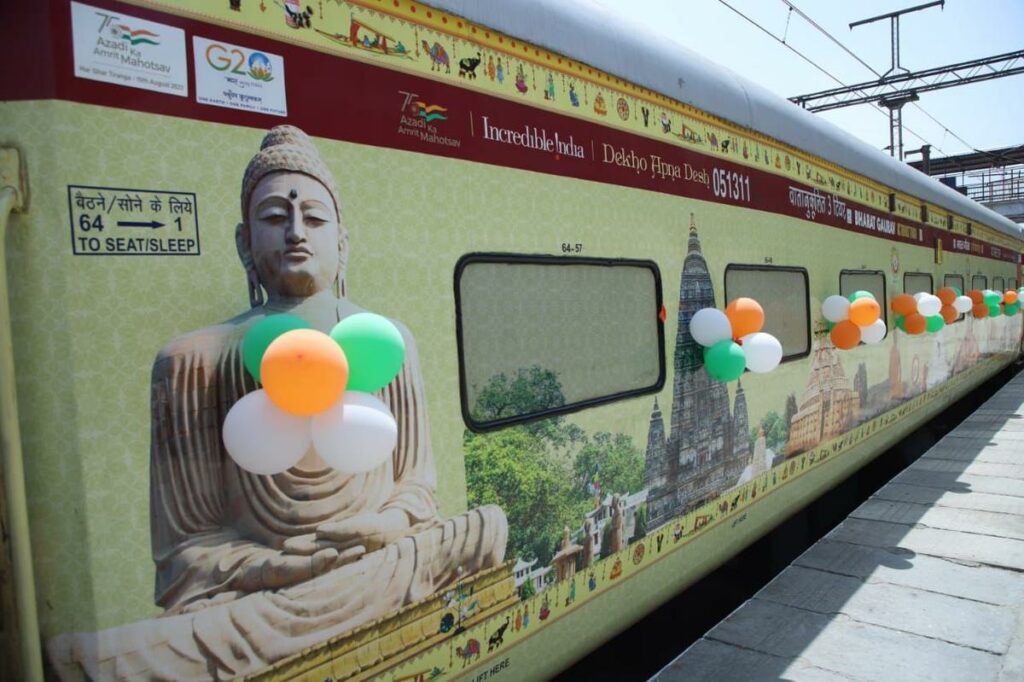NEW DELHI, Apr 14: On the occasion of the Ambedkar Jayanti, the government launched the first Ambedkar Circuit Tourist Train on Friday which will cover prominent places associated with the life of the architect of the Indian constitution Dr B.R. Ambedkar as well as important Buddhist heritage sites.
The ‘Bharat Gaurav Tourist train’ is being operated under the ‘Dekho Apna Desh’ initiative which is aimed at promoting domestic tourism, and is a joint collaboration between the Ministries of Tourism and Railways. The minister for culture and tourism, who flagged off the inaugural run of the train at the Nizamuddin station in Delhi, said the train aimed at giving glimpses of the illustrious life of Bharat Ratna Dr Babasaheb Ambedkar.”
The eight-day special tour will include visits to prominent places associated with the life of Dr. Ambedkar like New Delhi, Mhow, Nagpur and sacred Buddhist sites of Sanchi, Sarnath, Gaya, Rajgir, and Nalanda.
The first stop will be New Delhi from where tourists would be taken to the B.R. Ambedkar memorial. The next stop would be at his birthplace Mhow from where the train will move to Nagpur where tourists proceed to visit Deekshabhoomi, a consecrated monument of Navayana Buddhism. From Nagpur, the train will depart for Sanchi.
The tour will then proceed to Varanasi followed by Gaya, the last destination. Bodhgaya and the famous Mahabodhi Temple and other monasteries would be part of the itinerary there. Next, the tourists will proceed for sightseeing to Rajgir and Nalanda by road.
The tourist train is fitted with a well-equipped pantry, an infotainment system and CCTV cameras. The Tourism Ministry had announced the special Ambedkar Circuit in September last year. The Ambedkar Circuit was the fourth in the list of special tourist circuits namely, Ramayana Circuit, Buddhist Circuit, and North East Circuit. It aims to attract a wider tourist base besides the Dalit community, who frequent these key destinations as a pilgrimage.
(Manas Dasgupta)

